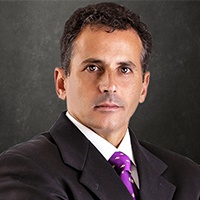 Morgan City White Collar Crime Lawyers, Louisiana
Morgan City White Collar Crime Lawyers, Louisiana
Sponsored Law Firm
-
 x
x

Click For More Info:
-
The Law Offices of Richard L. Cooper, P.A.
848 Brickell Avenue Suite 800 Miami, FL 33131» view mapDWI/DUI, Drug Trafficking, Felony Nationally Ranked Top 40 Under 40
With Richard L. Cooper you can expect a trusted confidant who will work diligently to fully understand your case and determine a road map to help you regain control of your life.
800-756-2781
Not enough matches for Morgan City White Collar Crime lawyer.
Below are all Morgan City Criminal lawyers.
Sponsored Lawyers
1-7 of 7 matches
Divorce & Family Law, Criminal, Accident & Injury, Pharmaceutical Product, Estate
Damon J. Baldone & Associates is a full-service law firm located in downtown Houma. Our main objective is to make our clients’ lives easier. We take a fresh and effective approach to representing our clients, tailoring our legal services to fit your needs. We have served our clients for over 20 years with creativity, sensitivity, and foresight. Learn why experience is key; phone Baldone at 985.868.3427.
(more)



 Richard L. Cooper Miami, FL
Richard L. Cooper Miami, FL AboutMiami Attorney at Law
AboutMiami Attorney at Law ServicesCriminal Defense
ServicesCriminal Defense


